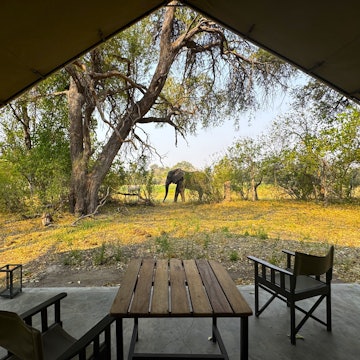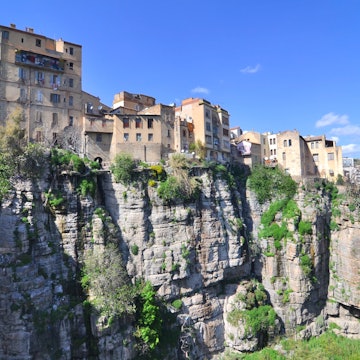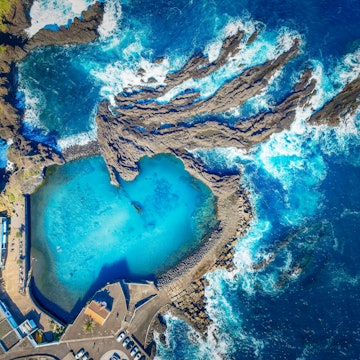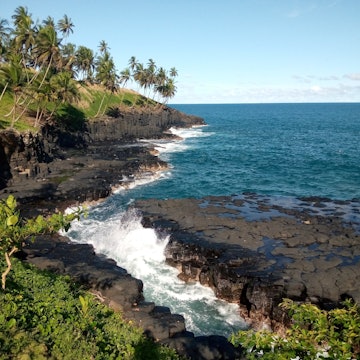

The birthplace of Vodou, Benin is steeped in culture and history © peeterv / Getty Images
Visas are an essential part of travel – the physical gatekeepers of entry or exit into a country – and citizens of many countries outside Africa will need a visa to visit Benin.
Currently, citizens of 55 countries can enter Benin visa-free, but the majority of these countries are in Africa. Travelers on this list are granted entry into the country for 90 days as part of reciprocal visa exemption agreements with other countries.
If you're not a national of a country in ECOWAS (Economic Community of West African States) or another African country, you will most likely need to apply for a visa in order to enter Benin. However, tourists from Israel, Haiti and some East and Southeast Asian countries are permitted short visa-free stays in Benin, ranging from 14 days to 90 days, depending on their nationality.
All other foreigners require a transit, tourist or business visa to visit Benin. Make sure you apply early – roughly one to two months in advance. Currently, no nationalities are banned from getting a visa to visit Benin. If you plan to visit Benin alongside other countries in Africa, it is important to secure your visas ahead of time,or confirm that you can get a visa on arrival for the countries you are visiting.

Tourist visas for Benin
Tourist visas for Benin include 30-day single-entry visas, 30-day multiple-entry visas and 90-day multiple-entry visas. If you are traveling to Benin for a short period of time, it is recommended to get a 30-day multiple-entry visa in case you decide to detour to neighboring countries like Nigeria, Ghana or Togo.
The easiest way to go about this is by visiting the Benin e-visa website, which can be accessed by citizens of 140 countries, including most nations in Europe, Asia and the Americas. You can obtain an e-visa to visit Benin for transit, tourism and business purposes; see the guidance on the e-visa site for more information.
Applying via the website eliminates the need to spend time queuing at a Beninese embassy or consulate in person. However, if you have questions that are not answered by the e-visa website, it's worth contacting the Beninese embassy responsible for the country where you reside.
Travelers from countries in Europe and the UK should contact the Embassy of Benin in Paris; travelers from the United States and North America should contact the Embassy of Benin in Washington, DC.
Other kinds of visas for Benin
If you would like to visit Benin for a period longer than 90 days, or need a work visa, student visa or resident visa, you will need to apply for a visa through the nearest Beninese diplomatic mission (or the diplomatic mission responsible for your home country).

Cost of visas for Benin
The cost of your visa will depend on your nationality and the region of the world you are applying from. As a guide, fees are currently around US$60 for a 30-day single-entry visa, around US$85 for a 30-day multiple-entry visa, and around US$110 for a 90-day multiple-entry visa.
To apply for a visa, you'll need a passport valid for six months from the date you apply. If you are also planning to visit Togo, your passport needs to have at least one year of remaining validity. You'll also need a yellow fever certificate and at least two blank pages free in your passport (this is a requirement for all African countries). Passport photos are needed for in-person applications.
You'll also need to provide details of your arrival flight and departure flight (the date of arrival you provide will be the start date for your visa) and the address of the hotel where you are spending your first night. For more information about visas for Benin, start by reading the guidance on the official government e-visa website.
A yellow fever certificate is required
All visitors traveling to Benin need a yellow fever certificate to prove they have been vaccinated against the disease. You'll need to provide this proof of vaccination when you apply for a visa. If you don't have a certificate already, make sure you get vaccinated well in advance – the vaccine takes at least 10 days to become active. Vaccination against yellow fever is mandatory for a number of other African countries, and also in some parts of Asia.
Take your Benin trip with Lonely Planet Journeys
Time to book that trip to Benin
Lonely Planet Journeys takes you there with fully customizable trips to top destinations – all crafted by our local experts.

























